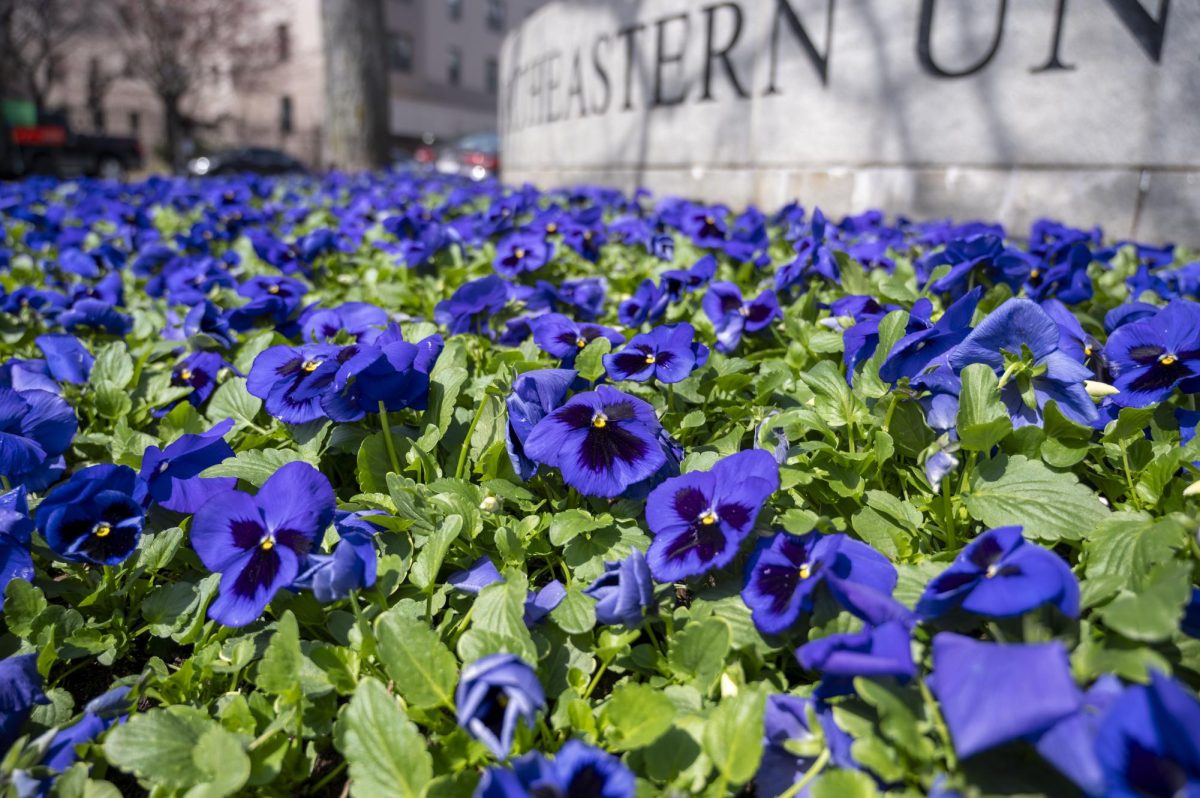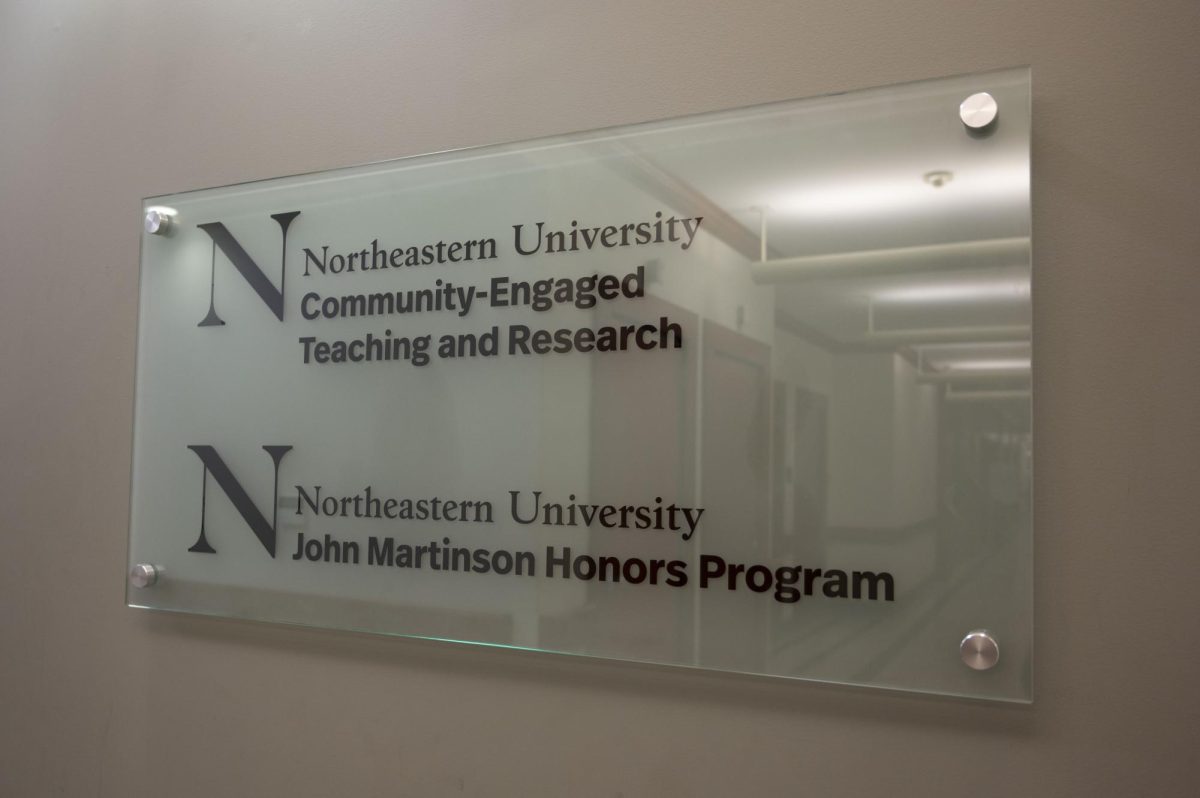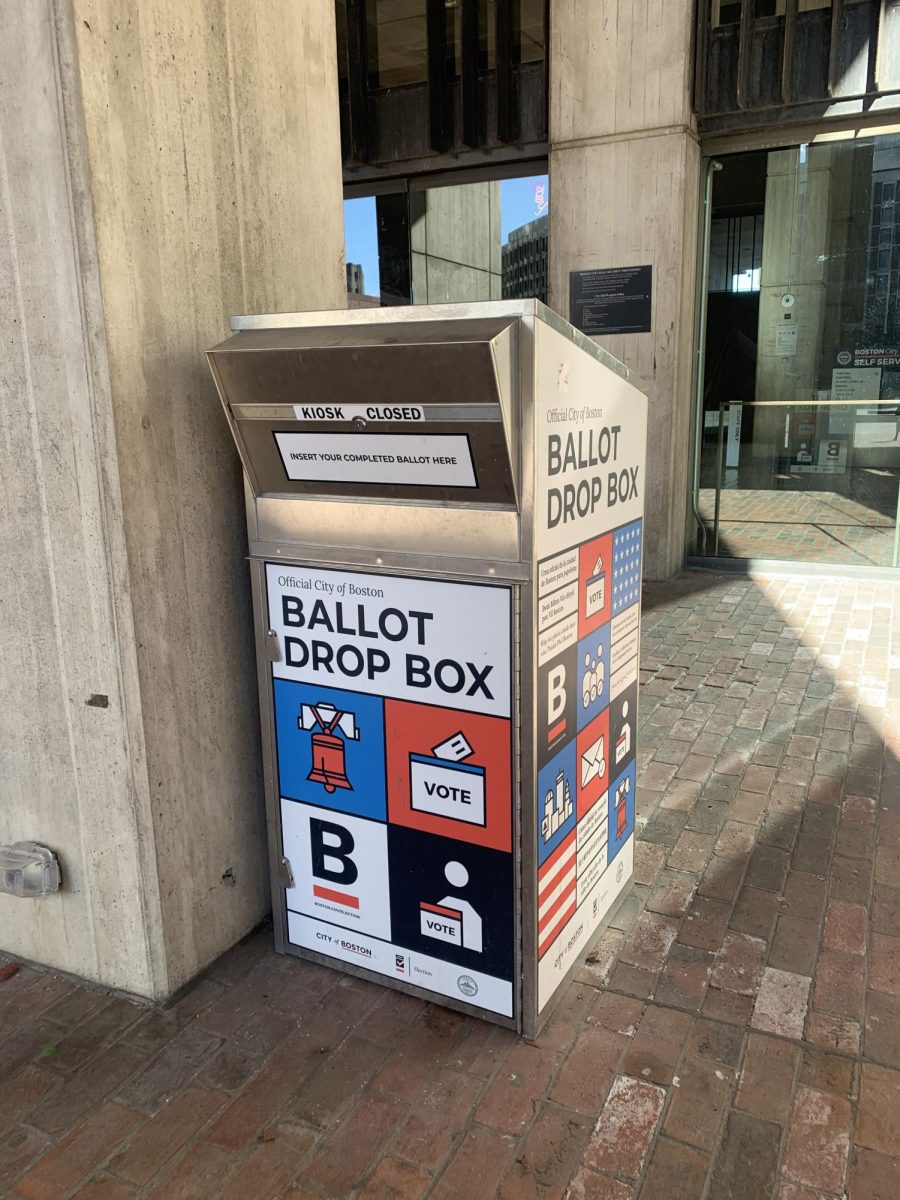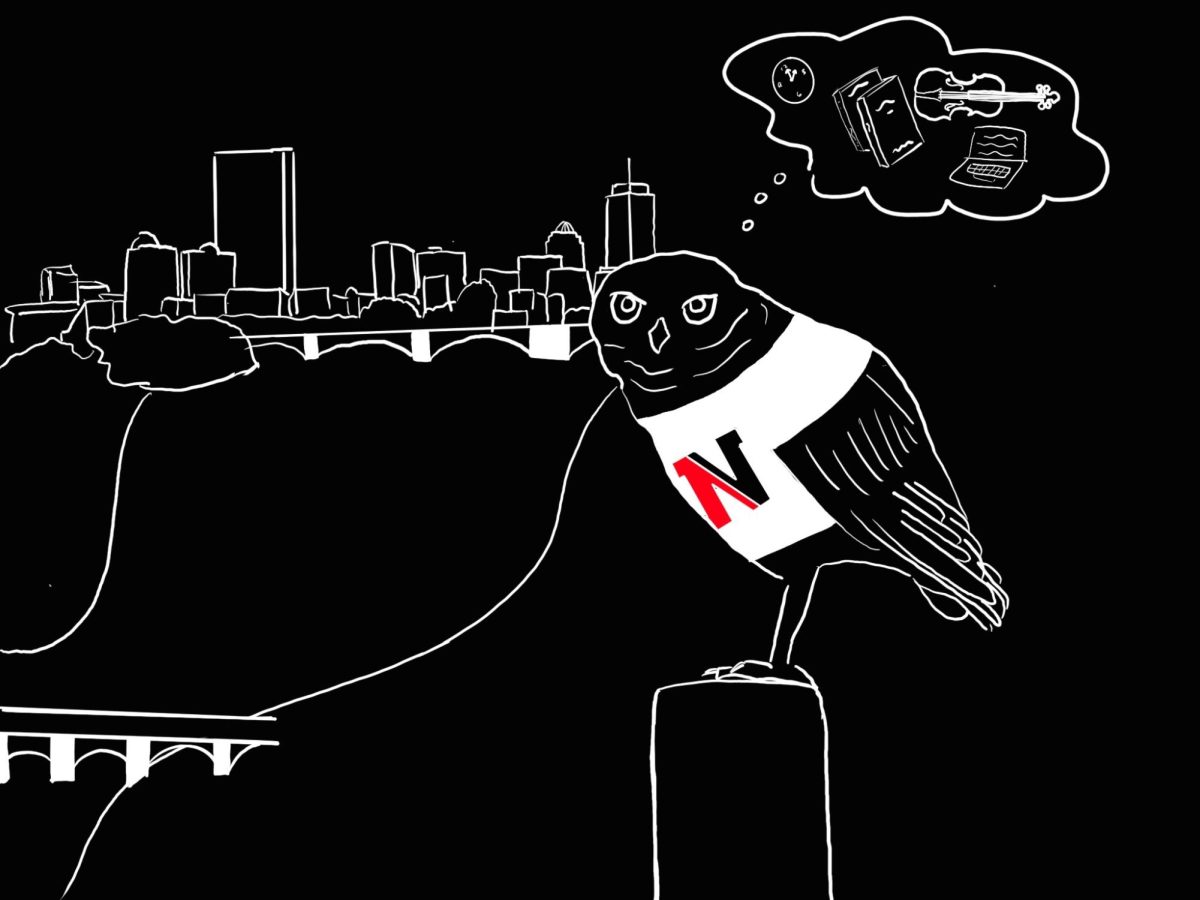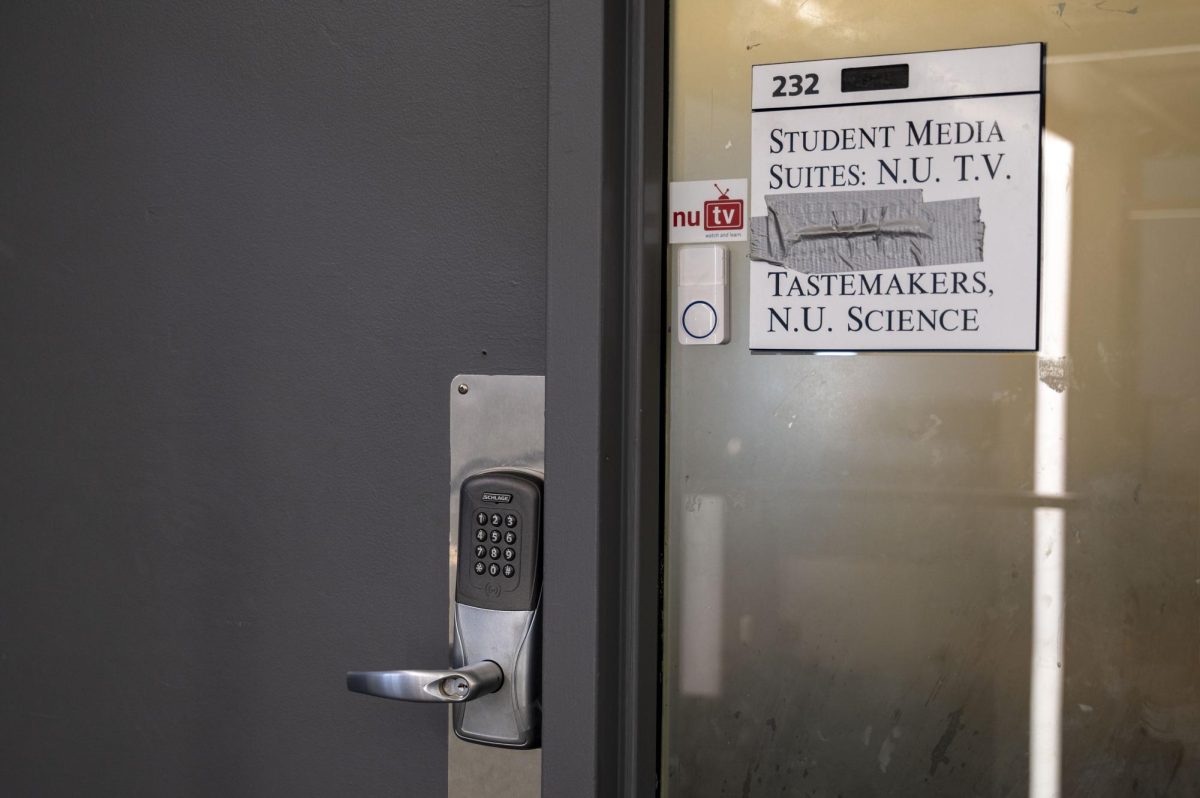The administrators who faced the community members were brave. Armed with just a PowerPoint full of pie charts, figures and fuzzy math which was quickly picked apart by the audience, they endured heckling, taunts and interruptions. It wasn’t pretty. The comments from the community were angry and urgent, but sounded well-rehearsed. That is probably because at this point many of the same people have been saying the same things for three or more years. They want fewer students in their neighborhoods.
The crucial housing formula is the number of students housed on campus divided by the total number of students enrolled. Multiply that by 100 and you have the percentage of students housed on-campus. Seems simple, but there’s a lot that goes into that number. Right now, it’s pretty low, at around 50 percent. The community wants it higher. Sure, not all of Northeastern’s enrolled students are on campus at any given time, and the diversity of student’s co-op schedules creates an unpredictable flux of those numbers. It’s hard to know exactly how many of the enrolled students are in Boston, around the world, subletting or living at home at any given time.
Regardless of the exact numbers, there’s no arguing that there are a lot of Northeastern students off-campus. On the whole, they tend to be loud, trashy, disrespectful and transient neighbors. It’s not a case of a few bad apples – Mission Hill, the Fenway, Roxbury and others have become the Northeastern Orchard. There wouldn’t be an issue if every student was an angelic neighbor with a 9 p.m. bedtime. It’s certainly the quantity of students, but a major issue is the quality of behavior. It’s the culture that has been associated with moving off-campus – freedom from rules, proctors, and Resident Assistants – and the assumption that a lease is a license to party.
Yes, the residents are upset, and rightfully so. Some of their ideas weren’t constructive, like saying Northeastern should fill its leased lab space with cots. That won’t fix the problem. But they have some good ideas too, like letting an outside developer front the cost for the new residence halls so Northeastern won’t have any immediate costs. Negotiate to allow Northeastern to operate and lease the building, and slowly buy it back over time. It’s realistic, it’s feasible, it could work. If Northeastern is dragging its feet on coming up with ideas and making excuses, then the community ought to advocate for its own proposals and start that dialogue for them.
What seems like a simple request is more complicated than it appears. But now that the window of time is closing in which Northeastern must take action, residents have started to speak up a bit louder. The pressure is theoretically on, but where is the pressure really coming from? There seems to be little the community can do other than attend these meetings and shake their fists. Many residents have already given up, moved or surrendered. Does Northeastern think that if they wait long enough the angry mob will eventually be too scarce to mount an opposition? Is that what they want?
Maybe the problem is that after a two-hour meeting, the Northeastern administrators pack up and drive away to their suburban homes and sleep soundly without the interruption of any wild parties from their co-ed neighbors. They awake the next morning and leave their neighborhood – free of beer cans, Solo cups and pizza boxes – and go about their day without a second thought for those who aren’t so lucky – or so highly salaried.
They are following President Joseph Aoun’s directive and a plan for Northeastern that appears to be a lot more focused on finances and rankings than on cooperating with the community that borders us physically, but is a world away in many of their eyes. Accusations from the community don’t help, but twisting the numbers in an attempt to pacify them doesn’t either. The only way that both sides can achieve a peaceable agreement is to take tangible steps toward compromise.
Northeastern: Survey off-campus students and find out who they are and why they aren’t living on-campus. Agree to change housing policies and prices to address the concerns you find, while focusing on bringing students back to campus. Maximize housing space available and take solid steps to increase the numerator (beds) and decrease the denominator (accepted students) of the housing ratio. Mitigate the party culture that has taken over Mission Hill.
Neighboring communities and the city of Boston: Put the pressure on Northeastern to be accountable and responsible for creating and implementing real, measurable changes. If they don’t make an effort, do everything in your power to apply appropriate, legal, and fair pressure from all available sources. Sanction or penalize them if they do not meet their goals on time or adequately.
It’s time for all parties to meet and begin to hammer out the details of the inevitable plan with a focus on mutual compromise. Otherwise, Northeastern policies will continue to extinguish the former culture and spirit of Mission Hill and other neighborhoods, and something much less favorable will take its place.







